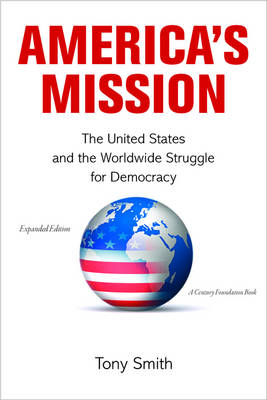The strength and prestige of democracy worldwide at the end of the 20th century are due in good measure to the impact of America on international affairs, argues Tony Smith. This book documents the history of American foreign policy with respect to the promotion of democracy worldwide, an effort whose greatest triumph came in the occupations of Japan and Germany but whose setbacks include interventions in Latin America and Vietnam. As Americans ponder the challenges of world affairs at the end of the Cold War, Smith suggests that they think back to other times when Washington's decisions were critical: not only to the end of the World Wars in 1918 and 1945, but to the end of the Spanish-American War in 1898 and the Civil War in 1865 as well. They will find that in the aftermath of victory, Washington determined to win the peace by promoting a concept of national security calling ultimately for democratic government in Europe, Latin America, and the Far East.
So the Congress set out to "reconstruct" the South in 1867; America aimed to democratize the Philippines in 1898; Wilson sought to "make the world safe for democracy," first in Latin America and then, after 1918, in Central and Eastern Europe; FDR and Truman dictated the democratization of Japan and Germany and called for democracy in Eastern Europe after 1945; Kennedy promoted the Alliance for Progress in Latin America; Carter launched his human rights campaign; Reagan (the most Wilsonian of Wilson's successors), heralded an international "democratic revolution"; Bush called for a "new world order"; and Clinton declared that "our overriding purpose must be to expand and strengthen the world's community of market-based democracies." Through a study of selected countries - most notably Germany, Japan, the Philippines, the Dominican Republic, Iran, and Nicaragua (but also Mexico, Chile, Guatemala, Czechoslovakia, Poland, Greece, South Africa, and Russia) - Smith reviews the American record both in local terms and with respect to its impact on world politics.
Smith's story is at once that of the central thrust of American foreign policy in the 20th century, and that of the central international political struggle of the period among nationalists wedded to rival ideologies of fascism, communism, and democracy, each striving to dominate world affairs. Now that this struggle appears to be over, the question is whether democracy can consolidate its position as the sole legitimate form of government worldwide, so creating a common form of government to express the nationalist sentiments that continue to be the hallmark of this century.
- ISBN13 9781400842025
- Publish Date 12 March 2012 (first published 28 August 1994)
- Publish Status Active
- Publish Country US
- Imprint Princeton University Press
- Format eBook
- Pages 528
- Language English
- URL http://degruyter.com/search?f_0=isbnissn&q_0=9781400842025&searchTitles=true
